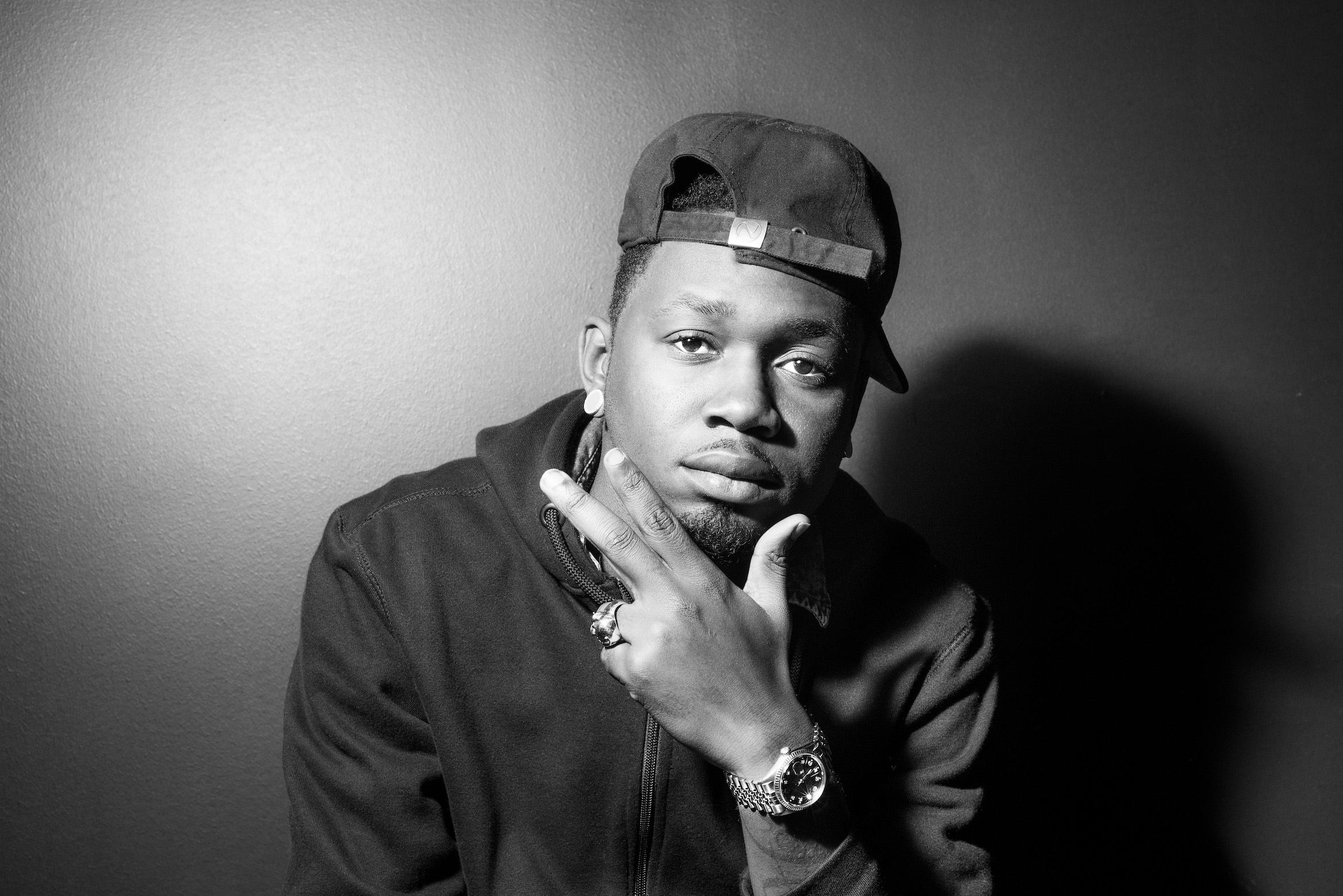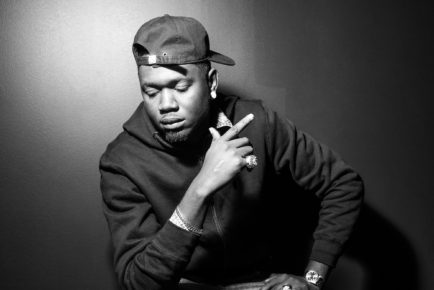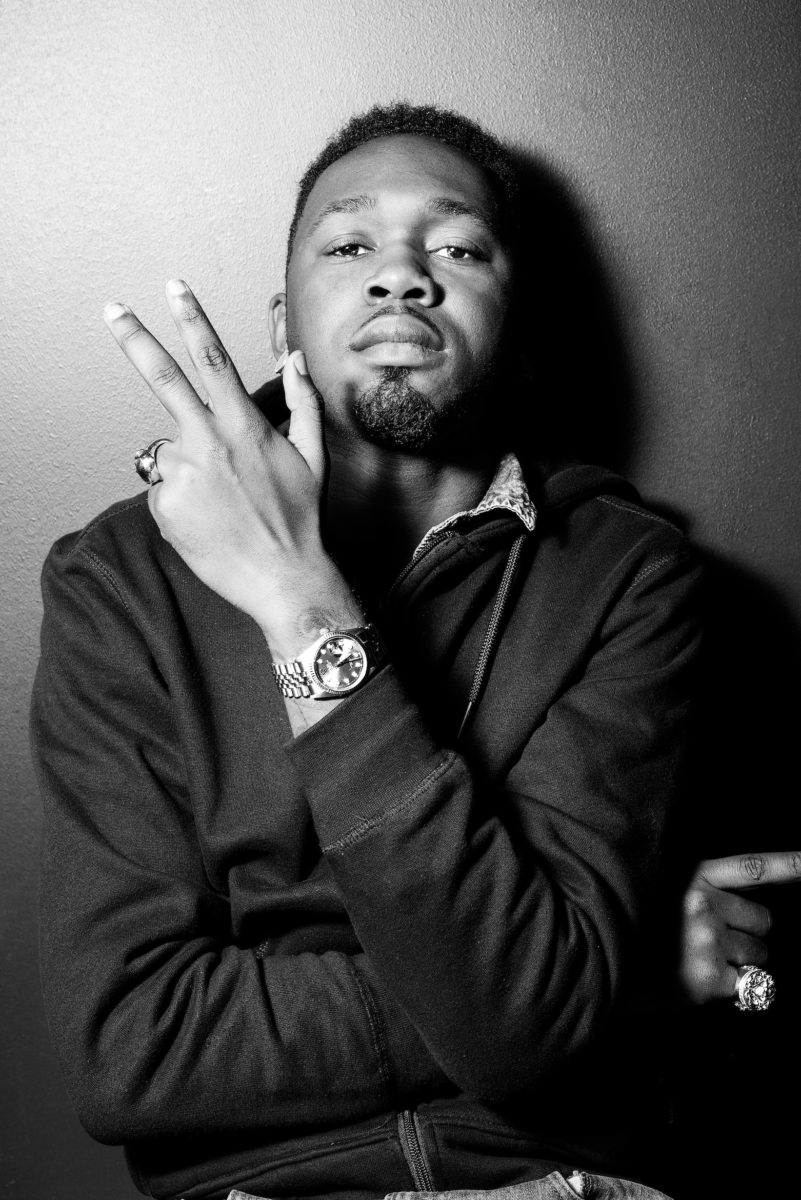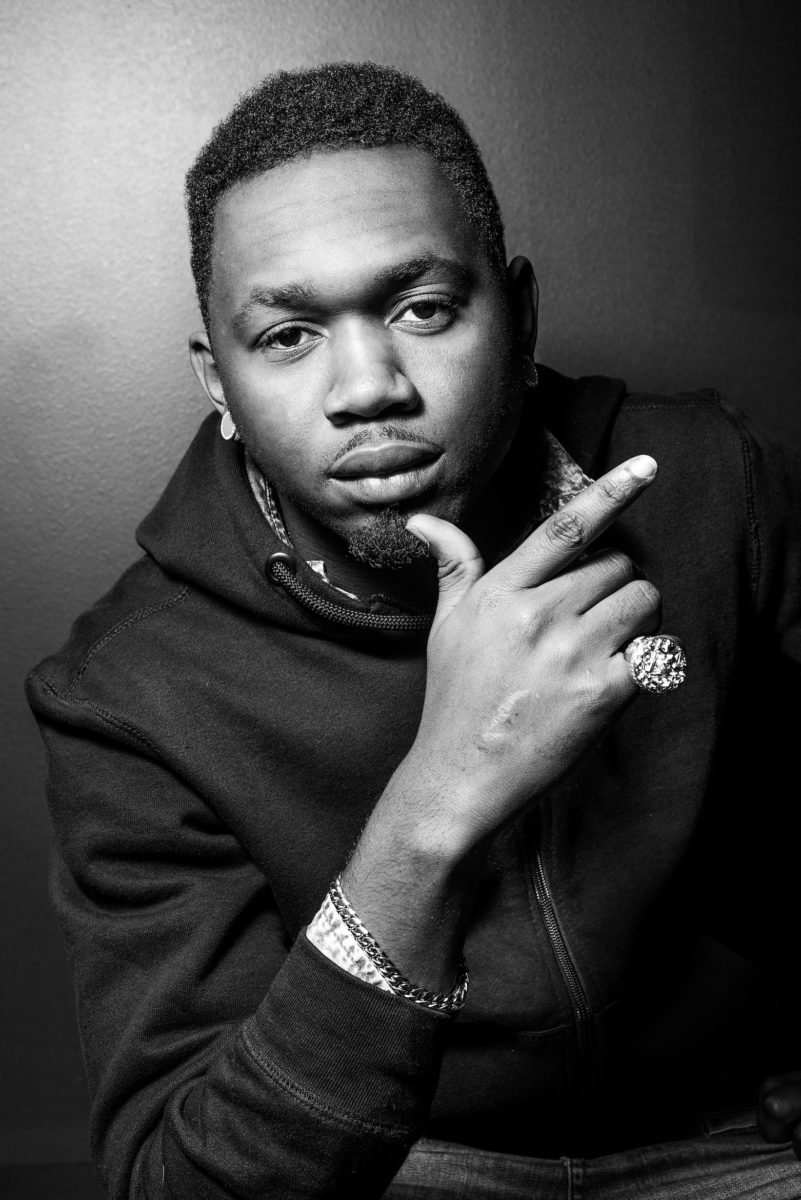The vibes are high as dancehall artist Kranium strides into Toronto’s REBEL nightclub. His attire is simple: black hoodie, blue skinny jeans and a few pieces of gold jewellery that glimmer from across the room. He immediately daps up the Urbanology crew, grinning from ear to ear, striking up conversation easily, as if he’s run into a group of old friends. He arrives for sound check, along with his DJ and road manager, straight from London, Ont. where he opened for Toronto’s Tory Lanez the night before as part of the I Told You tour. In a few hours, he plans to do it all over again for the first of Lanez’ two sold-out home-coming shows. The duo’s budding relationship began after they recorded the catchy single “We Can” together.
Since releasing 2013’s breakthrough “Nobody Has to Know”, which features Ty Dolla $ign on the revised and expanded version, Kranium signed a major label deal with Atlantic Records and released his debut album Rumors in 2015. His recent success comes at a time when dancehall’s influence is undeniable in mainstream popular music. Songs like Drake’s “One Dance”, Rihanna’s “Work” and Tory Lanez’s “Luv” have all been at the top of charts in recent years. While criticism emerged from some members of the dancehall community about how certain artists were ‘stealing the sound’ so to speak, Kranium isn’t fazed by it. Seeing different trends during his time living in Jamaica, New York and Florida, he says his music transcends different demographics, while maintaining its roots in dancehall.
With the added momentum of a major label backing him, he’s building on the traction he’s gained in recent years. He’s using his platform to ensure dancehall is represented to the mainstream in its unadulterated form.
What was your first exposure to music?
My first exposure was being close to my uncle, who was a veteran in dancehall and reggae music. His name’s Screwdriver. When I was young, I just watched the lifestyle of him and what he did. I loved it. I would be like I want to do that because I knew I could sing from my church days. The first time I went to record a song was in 2008 and music is a thing where once you try it and it sounds good enough, it becomes addictive. That’s where everything started.
What are some essentials you need in the studio?
A microphone. I don’t really need much to go into the studio. I’m not the type of guy who drinks or smokes to get a vibe. I just go off of the beat. It has a lot to do with surroundings, the surroundings are very important. If you’re in the studio and I hear, ‘blah, blah, blah,’ we don’t need you.
I feel like dancehall is the heart of music in the sense of getting a groove and a feel.
What’s that experience been like for you being signed to a major record label?
It’s been very good, because I feel like dancehall music has always been great music. Since I’ve been on this tour I realized every time somebody performs a hip-hop record, it’s cool. It’s like bump your head and bounce and things, but once a dancehall record comes on, once I go on stage, everyone’s ready to wine and dance, you know what I mean? So, I feel like dancehall is the heart of music in the sense of getting a groove and a feel. The only thing is we don’t have the outlet to get the music on the level where it’s supposed to be. And that’s the greatest thing about [being signed], you get an outlet. It might not come overnight; it takes time, but at the end of the day, I have an outlet and that’s the most important thing.
Dancehall and Jamaican culture has always been a heavy influence on American music from the roots of hip-hop to recent popular artists, but the mainstream music industry doesn’t always give it the proper credit and recognition it deserves. What are your thoughts about this?
I mean, yeah we feel some type of way. Sometimes we get frustrated about it, but at the end of the day, I’ve seen Sean Paul do it, I’ve seen Shaggy do it, I’ve seen Wayne Wonder get a piece of it, I’ve seen Elephant Man come through and Collie Buddz. So, I feel like it doesn’t get the real recognition it’s supposed to all the time, but it takes time and it’s like a cycle. When it comes around, you have to grab it as much as possible. Once the music is good, you can’t deny it. Once a song is a hit song, it’s a hit.
I’m not worried about it and I’m not bothered by it.
… An artist’s job is to be artistic and to be artistic [means] be creative and to be creative, you have to dabble into things. You have to step out of your comfort zone. I sing songs that have a hip-hop feel in it. So, all I can do is to make sure people understand like, yo, this is dancehall music and this is as real as it gets.
… to be creative, you have to dabble into things. You have to step out of your comfort zone.
How did your relationship with Tory Lanez develop?
We met in [Manhattan]. When I did the “We Can” record, I was like, ‘who could be dope on this record?’ and the first person that came to mind was Tory. When we reached out to Tory, he was already a fan. He was like, ‘Yo, “History” and “Lifestyle” are my records. I love that sh*t.’ It all [developed on its own]. Then he was like, ‘Yo, you’re coming on tour with us?’ and I was like ‘Yeah,’ and that’s how everything [started].
How do you like working with Tory Lanez?
It’s good working with him. At the end of the day, the main thing about working with Tory now is just like being on this tour, it’s taught me a lot of stuff. It taught me self-confidence; it taught me entertainment is not just about going on stage and singing. It’s all about being charming, being confident, being focussed and being real. It taught me a lot. I gained a lot of stuff from this tour just being around him.

Who are the artists that influence or inspire you the most?
In music for me personally, Screwdriver, Sam Cooke and Dennis Brown. Of course, we’re all influenced by Bob Marley. I listen to hip-hop so if I’m going to say hip-hop, definitely Tupac. I’m a huge Tupac fan, as well.
What’s been the most memorable moment of your career so far?
[Going to] Africa [for a performance].
What part of Africa?
Ghana. I took my shoes off when I landed. I had to touch the ground. I felt like I had to be barefoot, because that’s Africa man. Whether it’s true or not, we grew up hearing that [the first recorded man on earth was from Africa]. When I landed, it was like a whole different feel. My bloodline really started from there, my feet had to touch the ground. Africa was the greatest experience for me.
Photos © Lee Hon Bong + Urbanology Magazine






Comments are closed.